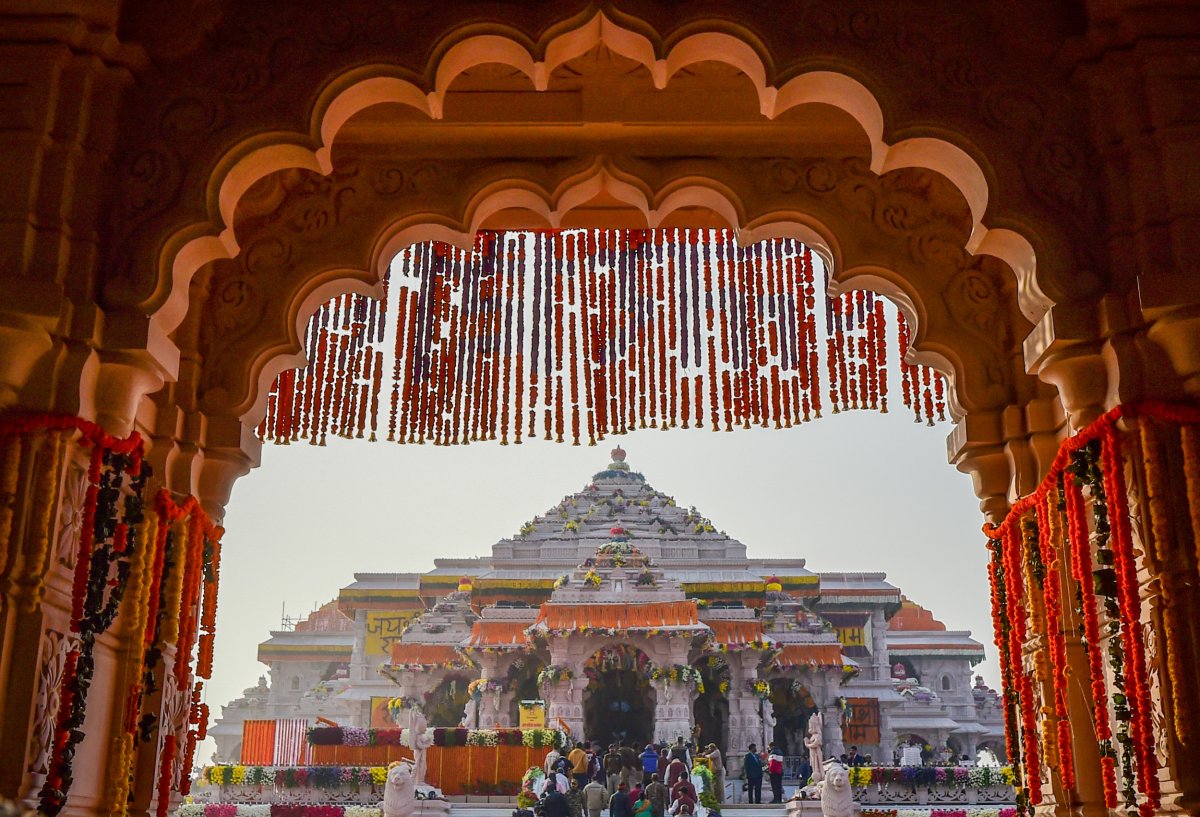Indian Prime Minister Narendra Modi recently oversaw the inauguration of the Ram Temple in Ayodhya, India, built on what was previously the site of the Babri Mosque.
Now, as India prepares for upcoming general elections, where Bharatiya Janata Party's (BJP) Modi seeks a third term in office, it's important to recognize what the inauguration of this temple means for already rampant Islamophobia in India, and around the world.
The Ram Janmabhoomi Temple, which translates to temple in the birthplace of Ram, a Hindu god, is being built on the land where Babri Masjid ("Babri Mosque") was located. The mosque was destroyed in 1992 by a Hindu nationalist mob, sparking religious riots across the country and resulting in nearly 2,000 deaths.
The site itself has a long and contested history, with the construction of Babri Masjid in 1528 that many Hindus claim was on the site of a temple and the place of birth of Lord Ram. Conflict over the site has spread to the rest of the country on numerous occasions. And instances of violence against Muslims in the country are persistent, with the death toll of Muslims in numerous riots and mob attacks estimated to exceed 10,000.
The inauguration of this temple sparks many important questions. What does the ongoing construction and inauguration of this temple on the site of a previous mosque symbolize to Muslims in India? What does this mean for Hindus and Muslims in the context of the upcoming general elections in India, and around the world? And how might Modi's re-election affect the global rise in widespread Islamophobia?
As a Hindu who grew up in South India, I remember being proud to learn of India as a secular state in grade school. I remember appreciating the beauty of the presence of mosques, churches, and temples in the same neighborhoods, with people of various faiths living harmoniously among each other.
But nothing about the way the temple to Ram was built, from 1992 to now, is secular. The message sent to non-Hindus in this majority Hindu state is clear: the making of India into a Hindu nation means that non-Hindus are pushed to the margins. The way this site was acquired, and the subsequent construction of this temple, are in direct opposition to the religious freedoms promised to a Muslim minority in India.
It is especially important to place this in a global context. The inauguration of this temple further enables Hindu nationalist sentiments, intensifying Islamophobia on a global scale. Hindu nationalist sentiments have spread rapidly in the U.S. as well since Modi's rise to power in 2014.
It is no surprise, then, that this spread of Hindu nationalism has been accompanied by its own Islamophobic ideology, sentiments, and actions. With a recent rise in Islamophobia due to other large-scale global conflicts, it is likely that Hindu nationalism will only have an additive effect.

Hindus in India argue that the Babri Mosque was built on the site of a previous Hindu temple, that is now being reclaimed with the construction of the Ram temple. But this claim has been disputed by historians. And even if this were true, this could not begin to justify the continued violence against and persecution of Muslims spurred by the construction of the temple.
As Modi's second term in office comes to an end, he has also announced the implementation of a citizenship law, the Citizenship Amendment Act, that excludes Muslims, but establishes a process for naturalization for individuals of all other religious groups. There is no doubt that it is his intention to incite hatred against Muslims, while using this platform to be re-elected. It is especially worthy of note that Genocide Watch has warned the international community of the BJP government's repeated attacks on Muslims and Dalits, and called for the investigation of India's discrimination against Muslims to report to the U.N. Human Rights Council.
While the inauguration of the temple may feel far removed from the hearts and minds of those of us living thousands of miles from India, it is more urgent than ever to stay vigilant against Islamophobia, which is surging in the U.S. and is unacceptable on any ground. And with the probable re-election of Modi as prime minister for another term, we must consider what this means for Indian Muslims in India, and around the world.
Many Muslim Americans compare the current climate to the time when the 9/11 attacks happened. As we interrogate Islamophobia as a result of Hindu nationalism in India, we must examine how Modi's re-election may lead to additional persecution of Indian Muslims and continue to sustain Islamophobia across the globe. We must demand an end to it.
Sudarshan Krishnamurthy is a Public Voices Fellow with The OpEd Project and AcademyHealth.
The views expressed in this article are the writer's own.
Uncommon Knowledge
Newsweek is committed to challenging conventional wisdom and finding connections in the search for common ground.
Newsweek is committed to challenging conventional wisdom and finding connections in the search for common ground.
About the writer
To read how Newsweek uses AI as a newsroom tool, Click here.








